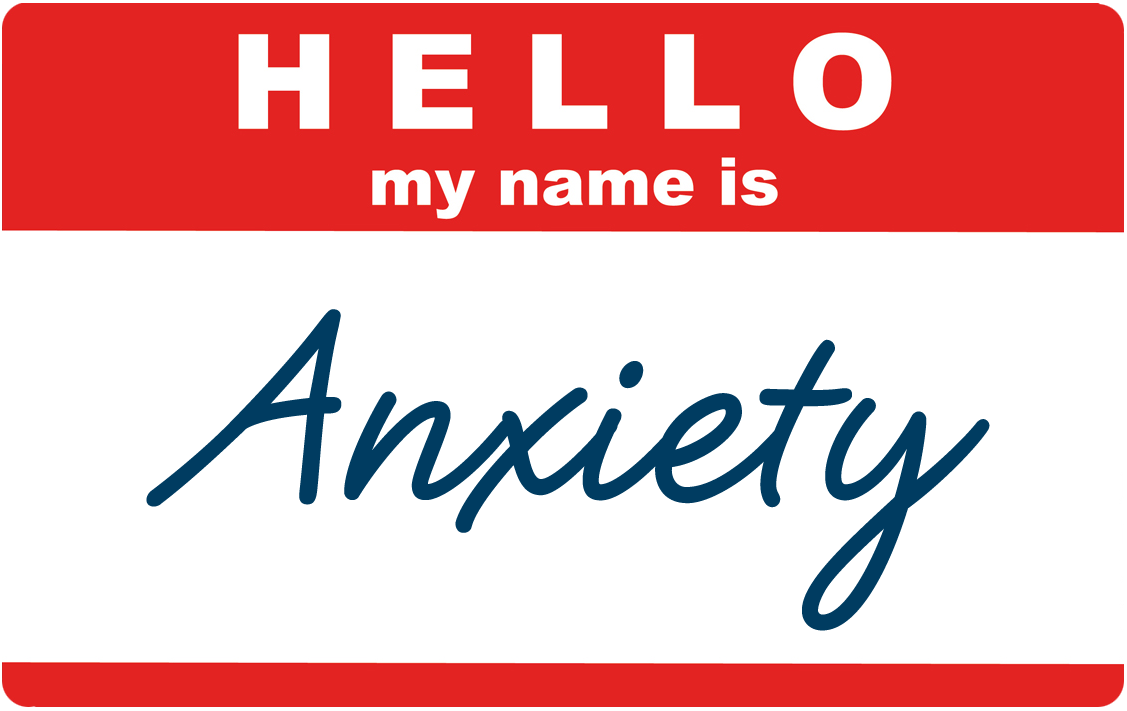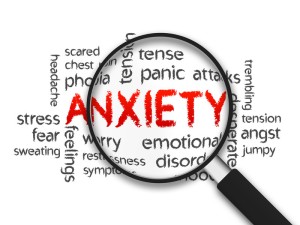
I have encountered a lot of people who think anxiety is a bad thing. Don’t get me wrong—if you or someone you know suffers from anxiety, you may be aware of what a horrible or painful experience it can feel like. However, there is a value in having our bodies become physiologically aroused and ready to react in various situations; for instance, if you are on a camping trip and you see a bear coming at you, your body may signal a “flight or fight” response. To our advantage, our bodies are equipped to sense dangerous situations.
What becomes problematic is when our bodies respond to situations that don’t warrant danger or remain in that “high alert” mode for too long. What is even more problematic is the suffering that accompanies anxiety: sweating, racing heart, disturbing thoughts, dizziness, and fatigue. These bodily responses have been reported to make a person feel like something horrible is about to happen. Here are some common statements: “I felt like passing out,” “I thought I was having a heart attack,” and “I was sweating so bad that it looks like I went swimming.”
When these experiences happen, it is common to want to block or avoid the anxiety from happening again. In fact, some people go to extreme measures, constantly living in “anticipating-mode,” preparing for the next anxiety-provoking moment to show up in their life. Painfully, anxiety begins to constrict their lives, keeping them from doing things that they want to do be doing, making them avoid places that trigger anxiety, and sometimes spending the entire day playing and re-playing the anxiety related events.
What kinds of things have you tried to do when anxiety shows up in your life? I invite you to briefly reflect upon the strategies that you have used when anxiety has shown up in your life. Perhaps, you could make a list of all the things that you have tried. Then simply ask yourself, “How have these strategies worked for me?
If you think about the mental and physical energy that goes into attempting to combat anxiety-provoking events, you may feel defeated. Not to mention that avoiding, suppressing, or controlling anxiety could have become a full time job that fundamentally prevents you from living the life you want to be living.
 Could you do something different? Could you respond to your anxiety in an alternative way? If your answer is yes, you could start by:
Could you do something different? Could you respond to your anxiety in an alternative way? If your answer is yes, you could start by:
– Describing anxiety for what it is: feelings, thoughts, physical sensations and urges: “My anxiety is showing up with my heart beating fast and shortness of breath.” “My anxious thoughts are showing up again and tell me that I may have a panic attack, this is bad.” “I’m having the strong urge to runaway from the elevator right now.” Describing invites you to simply notice what’s happening in the moment without avoiding the thoughts, feelings, sensations or urges.
– Make a conscious choice about how you want to respond to anxiety: Simply ask yourself this question: If I do what my anxiety tells me to do, does it help me to get closer or far away from my goals?
Approaching your anxiety with new behaviors can ultimately prevent your life from getting derailed. Forsyth & Eifert (2007) highlighted that changing your response to your anxiety could result in learning:
– “… that you can keep moving on with your day, even if you are experiencing some discomfort.“
At this point, I want to strongly encourage you to reevaluate your current relationship to anxiety and strategies you have been using. If those strategies work, you should continue doing them; if not, you may want to think about doing something different before anxiety takes over your life.
———————————————————————–
Written by: Jesse Weller, M.A., a psychological assistant at the East Bay Behavior Therapy Center.
Source: Forsyth, P. and Eifert, G. (2007). The Mindfulness & Acceptance Workbook for Anxiety. Oakland, CA: New Harbinger Publications.
Photo sources: (1) http://pilotfire.com/getting-relief-from-the-days-anxiety. (2) http://www.marilynmeberg.net/devotions/the-end-of-anxiety
Related articles
- 10 Best Ways to Manage Your Anxiety (alternet.org)






